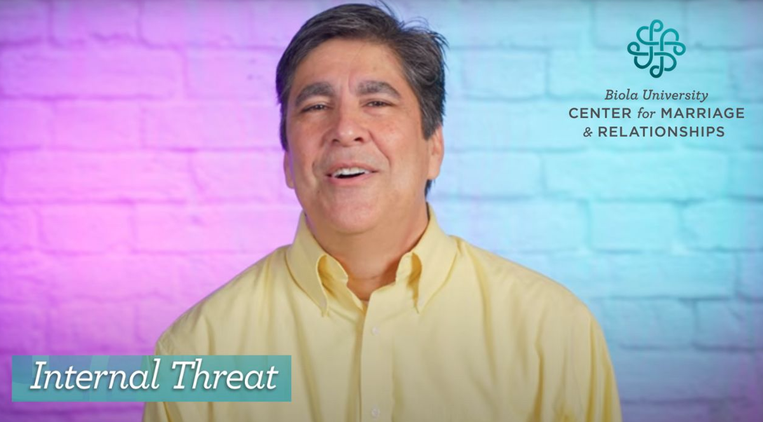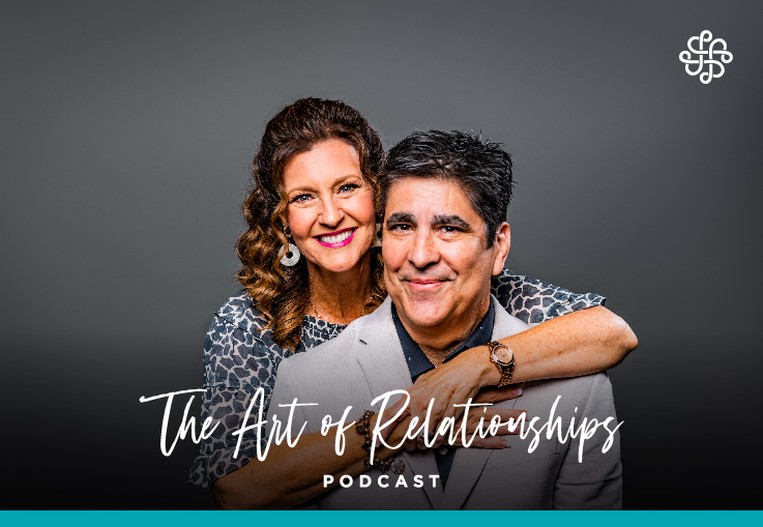How to Get Over Your Fear of Disappointing Others
Alison Cook - November 15, 2022
Topic: Anxiety, Emotions, Fear, Vulnerability

I recently experienced a major health scare.
As I first started to wrap my mind around what happened to me medically, I knew I was going to have to carve out some time and space to heal. I was going to have to say “Yes” to taking time for myself, which would mean saying “No” to meaningful commitments and responsibilities.
In other words, I was going to have to disappoint some people.
I hate disappointing other people. I mean I really hate it. So, this new and unwanted situation launched a backlash of turmoil inside of me:
- What about the people who rely on me?
- I can’t inconvenience anyone!
- How can I feel good about myself and disappoint other people?
That last one got me thinking:
Why do we hitch our self-worth to how well we care for other people?
What if we measured our worth by how well we care for ourselves when we’re hurting?
Like many women, I am hard-wired to want to care well for other people. There is so much going on in our world right now, the last thing any of us wants is to add more challenges to someone else’s plate. However, my crisis meant I was going to have to do the very thing I hated. I was going to have to disappoint some people in order to prioritize my own health.
You may not have a crisis in your life that demands you change your schedule. But, my guess is that there are parts of you that could use a good dose of your time and attention. In order to meet your own neglected needs, you will likely need to face your fear of disappointing other people.
- Do you hate disappointing your kids, your friends, or your colleagues?
- Do you bend over backwards to make sure no one ever feels inconvenienced?
- Are you compulsively meeting every need around you?
If you answered “yes” to any of these questions, take notice. Your fear of disappointing others may be keeping you from caring for yourself in the way God would want. (And, spoiler alert: it might not be good for those other people, either.)
Why do we fear disappointing others?
There are several altruistic reasons that you might fear disappointing others. For example, you:
- don’t want to break a commitment
- desire to meet the needs that are presented to you
- want to finish a job that you’ve started
- don’t want anyone else to suffer as a result of your actions.
There are also some self-protective reasons that we don’t want to disappoint others, such as:
- not wanting to appear flaky or irresponsible
- an aversion to conflict
- wanting people to like us
- feeling like we need to over-perform in order to earn respect.
The truth is all of these reasons are valid, and most of us are a mixture of altruistic and self-protective. Regardless of your motives, being responsible, committed, and aware of how your actions affect others are admirable qualities. But, these qualities can also get extreme. When you work too hard to keep everyone else happy you risk:
- leading other people on, only to let them down later
- stretching yourself beyond your limitations
- enabling others instead of empowering them
- making promises you can’t follow through on
- keeping your loved ones from lessons God has for them.
In short, it’s incredibly important to balance your responsibility to other people with a deep sense of responsibility to the parts of your own soul in need. It’s not only good for you; it’s good for other people.
Even God disappoints people.
In his beautiful book, The Lion, The Witch, and The Wardrobe C.S. Lewis suggests that Jesus, represented by a lion in the character of Aslan, is good, but not necessarily safe. There is a sense in which Aslan’s ways are sometimes mysterious—even disappointing—to those who love him. If you read the Gospels, you see this to be true. Jesus disappointed his followers frequently (John 11:2-6; Luke 7:19; Luke 24:21.) Perhaps the biggest disappointment was that he didn’t overthrow the political powers in the way many of his followers had hoped. Instead, he allowed himself to be taken and crucified by them. Can you imagine the disappointment Jesus’s friends and followers felt at that moment? They had pinned their hopes on this man. Disappointment had to be heavy.
Jesus didn’t always act in the way that his followers wanted. But, here’s the key: Jesus always acted out of a commitment to a Higher Good.
Jesus didn’t disappoint people because he was selfish. He disappointed people because he understood a much bigger picture than his followers did. He understood how important it was to:
- stay focused on what God wanted, not on pleasing other people.
- stay true to his calling, not on temporary distractions.
- focus on the long-game, not providing instant gratification.
There is a lesson here for us.
To live as Jesus did, you will have to face your fear of disappointing others.
You might have to disappoint someone, and that might indeed cause him or her pain. But, that doesn’t always mean you are doing something wrong. In order to disappoint others with integrity, you must have a clear sense of the “Yes” you are moving toward, even as you say “No” to other people.
Here are some good reasons to face your fear of disappointing other people:
1.) You or a loved one are going through a crisis and need space for your own healing.
2.) You have made new commitments at work, home, or church, which means you will need to scale back old ones.
3.) You are going through a major life transition, such as a move, a marriage, a divorce, empty nest, or having children.
4.) You are growing personally and healing parts of you that have related to others in unhealthy ways. Perhaps you have become aware of parts of you that have enabled other people. Or, you might have realized you’ve formed a habit of over-extending yourself. Extracting yourself from those relationship patterns may indeed cause disappointment, but growth requires it.
5.) You want to take more time to grow spiritually. God wants all of who you are. He won’t hesitate to nudge you toward more time with him and more time with yourself so that you can grow into more of who he made you to be. Stepping back to take more time to grow your roots deep might mean you have to disappoint other people.
Each of these items will require you to create space for yourself in new ways. When you create more space for healing and growth, you will inevitably disappoint other people. But remember: if it is good for you, it will also be good for those around you.
You can disappoint others with integrity.
Once you understand the healthy “Yes” you must say, you can then work on disappointing other people with integrity. The trick is to learn how to disappoint people without adding insult to injury. Here are some examples of how:
1.) Make a clean break.
If you have to let someone down, be clear and be kind. Don’t let it drag out. For example, if you have to end a commitment or a relationship, it’s better to be upfront about it. They might be hurt or angry, but they’ll also be free to move on apart from you.
2.) Don’t apologize if you haven’t done anything wrong.
This is a hard one for many women. For example, I had to work hard not to “apologize” for my health situation, even though it was obvious that I had done nothing wrong. Instead of apologizing you might say, “I regret that I can’t continue on with this group,” or “As hard as it is, I have arrived at this conclusion.”
3.) Don’t lie or make up excuses.
This is closely related to not apologizing. We tend to want to soften the blow by making up excuses that may seem more palatable to the other person. But, lying isn’t good for you and it’s not helpful to other people.
If you have to back out of a commitment (or say no to one in the first place), try to state the facts as honestly and simply as possible. For example, you might say:
“I need some time to myself right now. I’ll be ‘off the grid’ for awhile.”
“I have to pull back from this commitment for personal reasons. Here’s what I can do to support you as you find someone else.”
“I appreciate you, and I need to focus on my self/family/health. If you don’t hear from me, please know I’m doing what is best for me right now.”
“I won’t be able to take on that project. In order to honor my existing commitments, I have to say “No” to this one.”
4.) Don’t make it about you.
When you disappoint someone, it’s OK for them to express their disappointment. If appropriate, respond with empathy, such as, “I know this is hard for you. I understand it is an inconvenience.” You can honor their experience without apologizing, getting defensive, or backtracking. It’s also not their job to make you feel good about this decision you are making. If they do, that’s wonderful. But, you are not looking for validation at this point. Your goal is to communicate honestly and effectively.
5.) Don’t take abuse.
While it’s not their job to take care of your feelings, it’s also never OK for the disappointed person to become abusive toward you. Letting someone down might bring up emotion. That’s OK, but if the emotions turn toxic, you can simply excuse yourself. If the relationship is worthwhile, you’ll work through it. If not, then it’s better that you found out the kind of person you are dealing with.
As you face your fear of disappointing others, you gain humility and you gain confidence. You can’t please everybody around you, and it’s not a healthy goal to set for yourself. Instead of pleasing others, learn the power of saying “Yes” to yourself and “Yes” to the life God wants for you.
“To obey is better than sacrifice.”—1 Samuel 15:22

Alison Cook
Alison Cook, MA, PhD is a counselor, speaker, and writer who helps people become comfortable in their own skin and fully live out their God-given potential. She is the co-author of Boundaries for Your Soul (Thomas Nelson, 2018). Alison is uniquely gifted at helping people learn how to:
- Develop confidence from the inside out
- Transform anxiety and loneliness into peace and connection with others
- Turn off the internal negative voice and experience the true loving God who isn't trying to beat you up
- Heal lingering trauma from childhood wounds or abuse
- Forge healthy relationships with safe individuals
For over 15 years, Alison has helped create transformative results for women, ministry leaders, couples, and families. Alison's Christian adaptation of the fast growing, evidence-based Internal Family System (IFS) model of therapy provides a step-by-step approach to managing emotions in partnership with God.

 Internal Threats
Internal Threats
 How to Avoid Back to School Burnout
How to Avoid Back to School Burnout
 The Marriage Meet Up: Keeping the A.H.A. in Your Love
The Marriage Meet Up: Keeping the A.H.A. in Your Love
 A Cry For Help: Our Personal Story, Part II
A Cry For Help: Our Personal Story, Part II